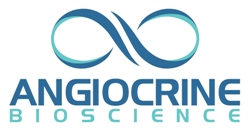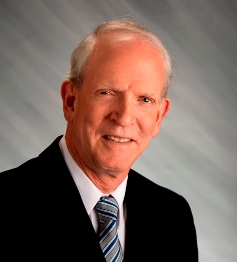|
Angiocrine Bioscience, Inc. |
|
|
February 17, 2014 Issue |
||
|
The Most Powerful Name In Corporate News and Information |
||
HEALTHCARE | INDEX | CONTACT | SERVICES | HOME PAGE |
||
|
Enabling Endothelial Cell Cultures for Academic and Industrial Clients |
||
|
Endothelial cells naturally form distinct niches for the stabilization and
expansion of tissue-specific stem cells
in vivo.
Angiocrine Bioscience has developed the VeraVecTM endothelial
cell platform for amplifying stem and progenitor cells, in both human and
mouse models, by recapitulating the proliferative stimulation of the
in vivo
vascular niche
in vitro.
The expansion capacity is on an unprecedented scale when compared to any
other technology, and it is achieved without the requirement for tremendous
volumes of costly media additives. This process can meet the needs of a
broad range of therapeutic, diagnostic, and research applications. |
|
|
|
Interview conducted by: Lynn Fosse, Senior Editor, CEOCFO Magazine, Published – February 17, 2014
CEOCFO: Dr. Davis, what is the concept behind Angiocrine Bioscience? Dr. Davis: We have built a company based on technology coming from the laboratory of Shahin Rafii, a professor at Cornell Medical Center. We have a unique way of enabling a culture of endothelial cells, both from mouse and human, such that they will proliferate much better and through many more passages than standard endothelial cells. We are providing these cells to academic and industrial clients. The idea is that these cells will enable vascular research but also are a foundation for proliferating stem cells in culture in a much more natural way than has been possible before.
CEOCFO: In layman’s terms, what is the science you understand that perhaps others do not? Dr. Davis: The trick is that there is a gene derived from a virus called E4ORF1. When you introduce this gene into endothelial cells it enables the cells to proliferate much more robustly and stably in cell culture.
CEOCFO: Where are you in the development and/or commercialization process? Dr. Davis: The company started just in March of 2013 and we are already offering products on our website. These are both human and mouse endothelial cells derived from a spectrum of different tissues. We will continue to build our portfolio on a monthly basis, offering more and more products as we go along.
CEOCFO: Would you explain some of the different products you will be offering? Dr. Davis: We are currently focused on expanding the range of tissues from which the mouse endothelial cells are derived. Looking forward, you can plan on seeing endothelial cells derived from human tissues and organs as well and also from tumors, both mouse and human. We will also have a range of modifications for these cells available. For instance, we should have fluorescently labeled cells available in short order. We also are going to be deriving cells from knock out mice. These are mice that have genes knocked out that are known to be important in the vascularization process.
CEOCFO: How do you decide what to develop first? Dr. Davis: We start with the foundation. The first products are going to be the fundamental endothelial cells themselves. From that point on we will be building out layer upon layer, getting into new areas of product offering that are not available from other companies.
CEOCFO: Has the scientific community been looking for a better endothelial cell? Or is it that they will be happy to know that it exists now? Dr. Davis: The scientific community has been aware for some time that primary endothelial cells do have their shortcomings. They are not very stable in culture and overall are hard to work with. The cells that we are providing offer a major advance in terms of simply facilitating research in this area. Clearly we need to be getting the word out there and so we are attending a number of scientific meetings in order to make the community more aware of what we have to offer and what our technology can do to advance their research.
CEOCFO: This is certainly not the first venture that you have been involved with. What have you learned in prior experiences that is most helpful as you grow and develop your company and as you roll out your products? Dr. Davis: To tell you the truth, this is somewhat of a new area for me. My past experience has been more in the area of therapeutics. I think that the lesson that holds true from that experience and also holds true here is to have an exciting offering and to make sure to develop that offering in such a way that you can deliver on promises. That is what we intend to do here.
CEOCFO: Are you funded for the steps you would like to take next? Dr. Davis: We did have an initial round of funding to launch the company. We do have aspirations to expand beyond being a provider of research tools which is the mode that we are in now. When we move on to those new areas, we will most likely be seeking additional funding.
CEOCFO: Is your area of endeavor in favor these days with the investment community? Dr. Davis: We think that we are in a good position in terms of timing. Clearly stem cell biology is an area of intense focus and has been for some time. We are going to be providing a means to further enable stem cell research. I think that focus is here to stay.
CEOCFO: Would you explain a little bit more of how what you developed makes a difference in stem cells? Dr. Davis: There is a concept of a vascular niche. Basically, that is that the vasculature really enables the proliferation of cells in an organ specific fashion. What the work in Dr. Rafii’s lab has determined is that the endothelial cells really provide all the factors that are necessary for stem cell proliferation. To translate that to invitro culture, you can culture the stem cells on these endothelial cells without the inordinate addition of exogenous factors such as serum. That enables the stem cells to proliferate in a more natural way and to maintain their phenotype.
CEOCFO: On a competitive landscape, are people looking to replicate what you have done? Dr. Davis: There are other companies that offer endothelial cells and various types of stem cells as research products. We feel that our technology can really be differentiated from the competition. We do have a proprietary position on our fundamental technology and so we look to make an impact in the future.
CEOCFO: Your website indicates that you are hiring; what types of personnel are you looking to add for the company? Dr. Davis: At this point we are still building the research team. We are looking for individuals with experience in both stem cells and biochemistry.
CEOCFO: Put it all together for our readers, why pay attention to Angiocrine Bioscience?
Dr. Davis:
We feel that we are
really going to revolutionize endothelial cell and stem cell biology with
our research product offerings. You can look to see those offerings
expanding on a regular basis. I encourage the readers to pay attention to
our website and to our advertising. Beyond that, we also look to make an
impact on human health, both from development and diagnostic approaches as
well as therapeutics approaches. We think we are a company with a long term
future and evolving business plan. |
||
|
|
||
|
|
||
|
Stem cells research products, Angiocrine Bioscience, Inc., Healthcare Companies, CEO Interviews 2014, Enabling Endothelial Cell Culture for Academic and Industrial Clients, VeraVecTM endothelial cell platform for amplifying stem and progenitor cells, in both human and mouse models, enable stem cells to proliferate more robustly, Recent CEO Interviews, Healthcare Stock, stem cell biology, means to further enable stem cell research, endothelial cells, various types of stem cells as research products, Endothelial cells provide stabilization and expansion of tissue-specific stem cells in vivo, recapitulating the proliferative stimulation of the in vivo vascular niche in vitro stem cells to meet the needs of a broad range of therapeutic, diagnostic, and research applications, these cells will enable vascular research and are a foundation for proliferating stem cells in culture in a much more natural way than has been possible before, gene derived from a virus called E4ORF1 introduced into endothelial cells it enables the cells to proliferate much more robustly and stably in cell culture, Angiocrine Bioscience, Inc. Press Releases, News, Companies looking for venture capital, Angel Investors, private companies looking for investors, healthcare companies seeking investors, endothelial cell companies needing investment capital, angiocrine bioscience publications |
||


 Dr.
Geoffrey Davis
Dr.
Geoffrey Davis 